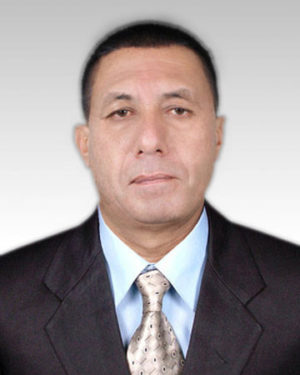Overview of family law in Nepal: Family Lawyers in Nepal
24 August 2020
Introduction
Family law is a body of law that deals with family matters and domestic relations. Family law is closely connected with the law of property and succession, which are associated with family power structures and family economic interests. It primarily governs the issues of marriage, divorce, custody, adoption, support and paternity. The legal provisions governing family matters are set out in Part 3 of Muluki Civil Code 2017 of Nepal.
This article intends to provide an overview of common issues relating to family law in a summarized manner.
A. Provisions relating to partition of property in Nepal
- Who shall be deemed as the coparceners for the partition of the property?
Husband, wife, father, mother, son and daughter shall be deemed as the coparceners for the partition of the property.
- What are the matters to be specified in the deed of partition?
The matters to be specified in the deed of partition are:
- Name, surname, age, address of every coparcener and that of his or her mother, father, grand-father and grand-mother;
- Property to be received by the coparceners;
- If the part of a coparcener involves debts, money receivable, amount of such debts and money;
- If, upon partition, any coparcener is to live with another coparcener, that details thereof;
- A matter to the effect that no coparcener has hidden or concealed any property subject to partition;
- If any property is to devolve on a coparcener only, upon the death of the father, mother, husband or wife, details thereof; and
- If the partition share of any coparcener is too been trusted to anyone, details thereof.
- What is the succession of property?
Succession is the practice of passing on private property, title, debts, rights and obligations upon the death of an individual.
- What is the order of preference of heirs for the succession of property?
The order of preference of heirs are set as follows:
- Husband or wife living in the undivided family;
- Son, daughter, widowed daughter-in-law living in undivided family;
- Father, mother, stepmother, grand-son, granddaughter, grand-daughter-in-law, on the side of son or daughter, living in undivided family;
- Separated husband, wife, son, daughter, father, mother, step-mother;
- Separated grand-son, grand-daughter from the son’s generation;
- Separated grand-father, grand-mother;
- Grand-father, grand-mother, elder brother, younger brother, elder sister, younger sister, widow elder brother’s wife or younger brother’s wife living in the undivided family;
- Uncle, aunt, nephew, niece, living in joint family; and
- Separated elder brother, younger brother, elder sister, and younger sister, widow elder brother’s wife or younger brother’s wife.
- Can the person be disqualified for succession?
A person can be disqualified for succession of property if he\she kills or causes the death of another person to obtain the property.
B. Provision related to adoption in Nepal
6. What is adoption?
Adoption is a legal process that establishes the relationship between a parent and an adopted child that is recognized by the law.
7. What is the eligibility for adopting a child?
The following persons are eligible to adopt a child:
- A couple to whom no child has born even up to ten years of the marriage;
- An unmarried woman having completed forty-five years of age, a widow, divorcee woman or judicially separated woman, having no son or daughter; or
- An unmarried man having completed forty-five years of age, a widower, divorcee or judicially separated man, having no son or daughter.
8. What is the age difference requirement between the adopter and adoptee?
The difference of age must be at least 25 years between adopter and adoptee.
9. What is the responsibility of the adopter?
The obligations of an adoptive person are as follows:
- To make arrangements for the maintenance, health care, sports, entertainment and proper education of the adopted son or daughter according to his or her reputation and capacity as if he or she were his or her biological son or daughter;
- To protect the rights and interests of the adopted son or daughter; and
- To exercise the authority as referred to in Chapter-5 of this Part (Provisions Relating to Maternal and Paternal Authority).
10. What is the procedure of adoption for a Nepalese citizen in Nepal?
- If a person is desirous of adopting a child, he or she shall make a petition to the concerned court, along with a duly executed deed of adoption, in fulfillment of the legal requirements.
- If, upon inquiring into the deed of adoption received, the concerned court finds that permission may be given to the petitioner for adoption, it shall issue an order granting permission for adoption and shall authenticate such deed.
- If, upon making inquiry, the court finds that permission cannot be given to the petitioner for adoption, it shall issue an order accordingly and give information thereof to the petitioner.
11. What is the procedure of adoption by a foreigner in Nepal?
A foreigner or couple qualified under Section 192 of Muluki Civil Code and desirous of adopting a Nepali minor or a minor of a foreigner domiciled in Nepal shall make an application to the Inter-country Adoption Board (“Board”), accompanied by the following documents, through the embassy of his or her country in Nepal and where no such an embassy is situated in Nepal, the embassy designated for Nepal or the central agency of the concerned country which gives permission for adoption:
- The applicant’s birth registration certificate;
- The applicant’s recently taken photograph;
- A photocopy of the applicant’s passport;
- A document certifying the applicant’s marital status;
- A certificate issued by a licensed medical doctor on the applicant’s health;
- A certificate issued by the governmental body of the concerned country, indicating that the applicant is of good character and has not been convicted by a court of a criminal charge involving moral turpitude;
- A document that certifies the applicant’s property and income source;
- The applicant’s social, psychological and home study report;
- Age, sex and other details of the child sought for adoption;
- A letter of consent issued by the government of the applicant’s country for making adoption in Nepal;
- A letter of guarantee issued by the government of the concerned country or by the embassy of that country based in Nepal or designated for Nepal indicating that according to the law of the applicant’s home country, the status of the person to be adopted is equal to that of the applicant’s biological son or daughter;
- A letter of guarantee issued by the government of the applicant’s home country, embassy of that country based in Nepal or designated for Nepal indicating that, according to the law of the applicant’s home country, the applicant is qualified to make adoption and has the financial capacity to bear all responsibilities including maintenance, health care, education and protection of the minor to be adopted;
If it is found, from an inquiry into the application received, that it is appropriate to grant permission for adoption according to the applicant’s request, the Board shall, by keeping confident the applicant’s name and address, forward the details relating thereto to the selection committee.
If the Board considers, from an inquiry into the recommendation received from the selection committee, that it is appropriate to grant a minor as recommended for adoption by a foreigner, it shall make according recommendation to the Government of Nepal.
If, upon an inquiry into the recommendation made by the Board, it thinks reasonable to do so, the Government of Nepal shall, according to the recommendation of the Board, grant permission for the adoption of such a minor by the foreigner.
C. Provisions relating to marriage and divorce
12. What are the conditions for a valid marriage in Nepal?
The following conditions are required for a valid marriage in Nepal:
- Consent of both man and woman to enter into the marriage;
- The man and the woman are not relatives, punishable by law on incest (except for the practices prevailed in ethnic community or clan);
- The matrimonial relationship of both the man and woman should not exist; and
- Both man and women must attain twenty years of age.
13. Is registration of marriage is required in Nepal?
The registration of marriage is required in Nepal to obtain the legal validity of such marriage.
14. What is marriage by registration?
Marriage by registration is a marriage where man and woman desire to conclude marriage though the registration process. They can file the application in relevant District Court of Nepal or in a Nepalese Embassy or Consulate General in case of residence in foreign countries.
15. Can divorce be affected by the consent of both parties?
The husband and wife with mutual consent can divorce their relationship at any time.
16. What are the grounds for divorce in Nepal?
16.1 Grounds for husband:
- If the wife has been living separately for three or more consecutive years, without consent of the husband;
- If the wife deprives the husband of maintenance costs or expels him from the house;
- If the wife commits an act or conspiracy likely to cause the grievous hurt or other severe physical or mental pain to the husband; or
- If the wife is proved to have made sexual relation with another person;
16.2 Grounds for wife:
- If the husband has been living separately for three years or more consecutively, without consent of the wife;
- If the husband deprives the wife of maintenance costs or expels her from home;
- If the husband commits an act or conspiracy likely to cause grievous hurt or other severe physical or mental pain to the wife;
- If the husband concludes another marriage; or
- If the husband is proved to have made sexual intercourse with another woman; or
- Marital rape.
17. What are the conditions of remarriage in Nepal?
A man or a woman may remarry in any of the following circumstances:
- If the matrimonial relationship between husband and wife is terminated pursuant to Section 82 of Muluki Civil Code;
- If husband or wife dies; or
- If husband and wife are separated after partition in accordance with the law.
Disclaimer: This questionnaire is for informational purposes only and shall not be construed as legal advice, advertisement, personal communication, solicitation or inducement of any sort from the firm or its members. The firm shall not be liable for consequences arising out of actions undertaken by any person relying on the information provided herein.




